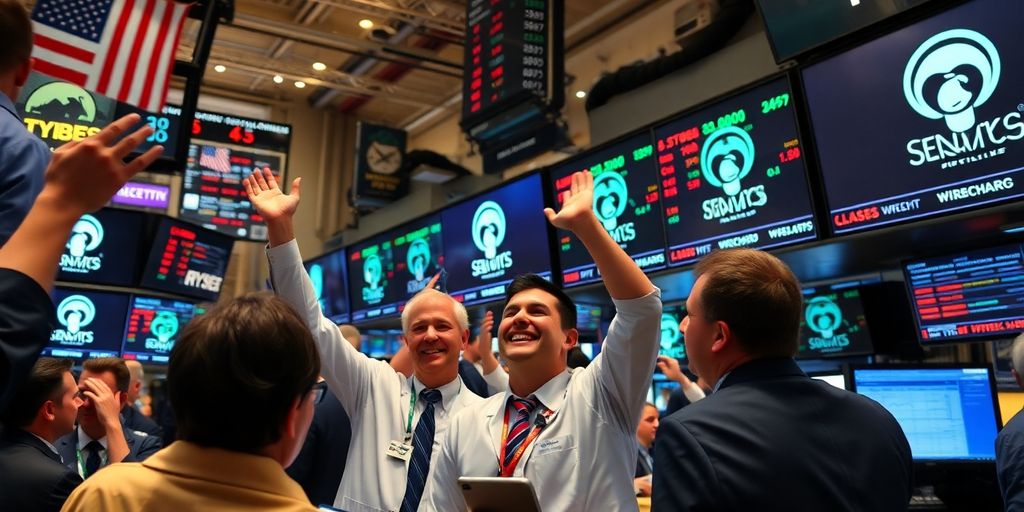Wall Street experienced a significant downturn on March 26, 2025, as investors reacted to looming tariff announcements from the U.S. government. Major tech stocks, including Nvidia and Tesla, saw sharp declines, raising concerns about the potential impact on the automotive industry and the broader economy.
Key Takeaways
- Wall Street indices fell sharply, with the S&P 500 down 1.12%, Nasdaq down 2.04%, and Dow down 0.31%.
- Nvidia and Tesla stocks dropped 6% and 5.6%, respectively, amid tariff uncertainty.
- President Trump is expected to announce new tariffs on automotive imports, raising fears of retaliatory measures.
- The S&P 500 has lost 3% year-to-date, while the Nasdaq is down over 7%.
Market Overview
The S&P 500 closed at 5,712.20 points, while the Nasdaq Composite ended at 17,899.02 points. The Dow Jones Industrial Average finished at 42,454.79 points. The declines were primarily driven by fears surrounding the automotive tariffs that President Trump is set to announce, which could lead to increased prices and production challenges in the auto industry.
Investors are particularly concerned about the potential for retaliatory tariffs from trading partners, which could exacerbate the ongoing trade tensions. Jamie Cox, managing partner at Harris Financial Group, noted, "Markets hate the tariff uncertainty, especially when it pertains to autos. Autos are ground zero for the negative economic impacts of tariffs."
Sector Performance
Among the 11 S&P 500 sector indexes, six experienced declines, with the information technology sector leading the losses at 2.46%. The communication services sector followed closely with a 2.04% drop. Notably, heavyweight chipmakers like Nvidia and Broadcom also faced significant losses, contributing to a 3.3% decline in the PHLX chip index.
Business Sentiment
A recent survey indicated a decline in optimism among top business executives, reflecting growing concerns about the economic outlook. Businesses are reportedly building up inventories in anticipation of potential price hikes due to tariffs. Data showed an unexpected increase in orders for durable U.S. manufactured goods, suggesting some resilience in the economy despite the tariff fears.
Future Outlook
Looking ahead, all eyes will be on the personal consumption expenditures price index, which is the Federal Reserve's preferred inflation gauge, set to be released later this week. Minneapolis Fed President Neel Kashkari expressed uncertainty about the effects of Trump's tariffs, suggesting they could lead to higher prices and potentially prompt the Fed to consider raising interest rates.
In contrast to the broader market trends, Dollar Tree shares rose 3.1% after announcing a nearing sale of its Family Dollar business, while GameStop surged nearly 12% following its decision to incorporate bitcoin as a treasury reserve asset.
As the market navigates through this period of uncertainty, investors remain cautious, weighing the implications of tariff announcements and their potential impact on corporate profits and economic growth.
Sources







































































































